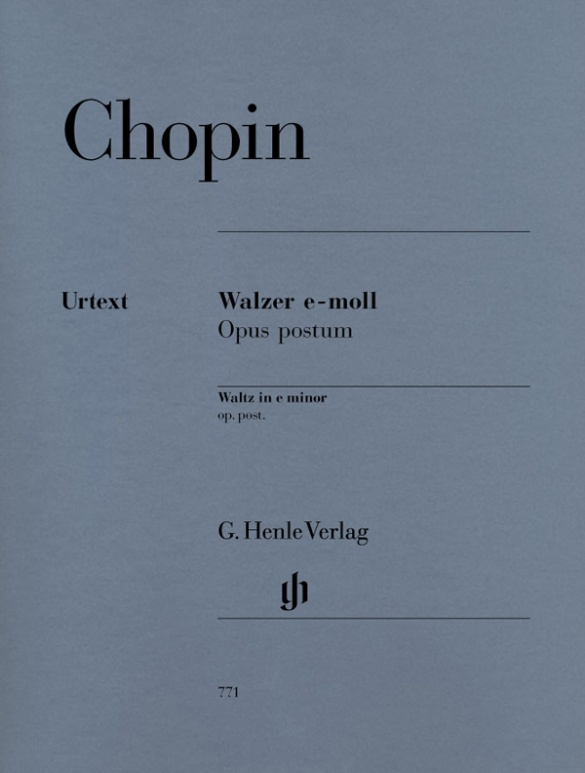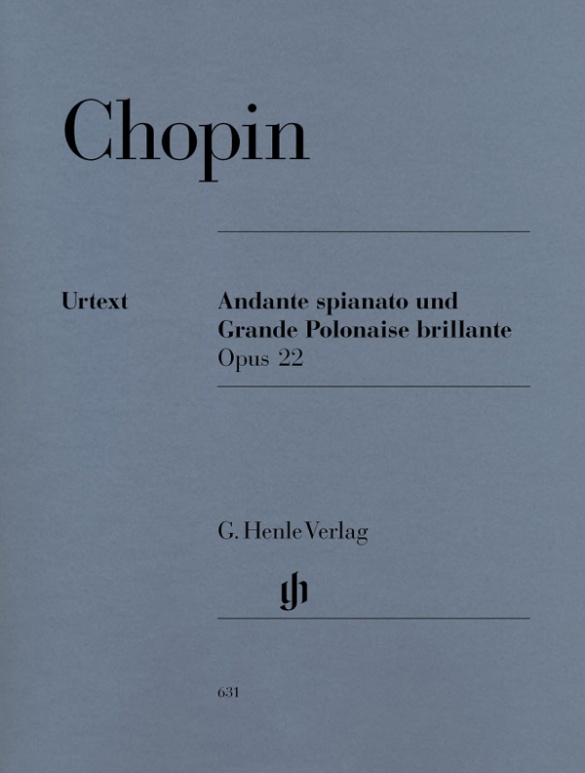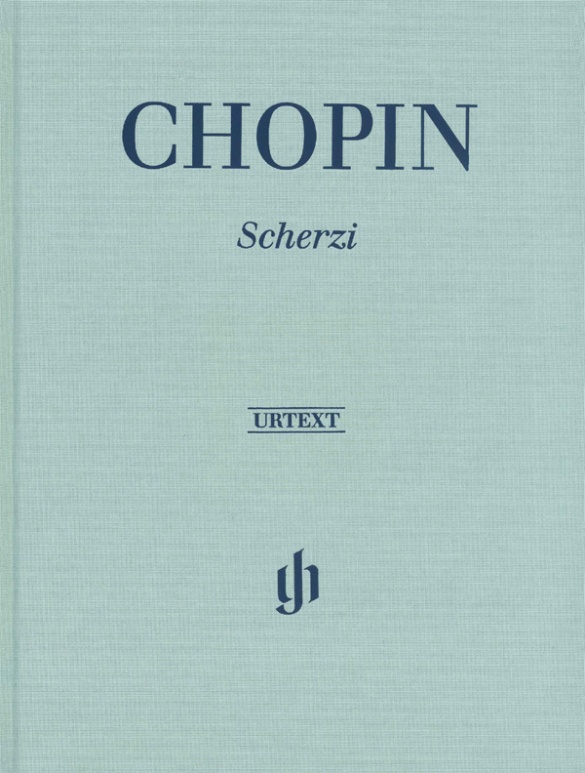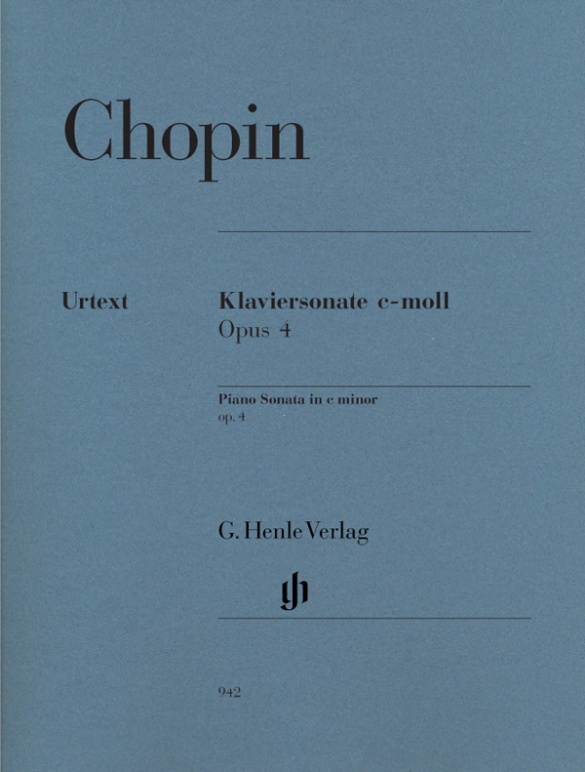

Frédéric Chopin
Piano Sonata c minor op. 4
The early Piano Sonata op. 4 offers interesting insights into the young Chopin’s compositional development. In all probability written during his student years at the Warsaw Conservatory and highly prized by Chopin himself, the nineteen-year-old composer presented the work to the publisher Tobias Haslinger on a visit to Vienna.
But the publisher put off the still unknown composer. It was only when Chopin was at the height of his fame that Haslinger saw a possibility to do business – but this time it was Chopin who declined. Thus his first sonata was never published during his lifetime. To date an inside tip, this work is now available for the first time in Henle quality.
Further information
mws-henle.cms.title-works.headline
mws-henle.cms-product-detail.composer-headline
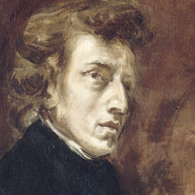
Frédéric Chopin
Pianist and composer. His work is concentrated around piano music that enjoys extraordinary popularity and has become an integral part of the concert repertoire. His music influenced subsequent generations in France (Franck, Saint-Saëns, Fauré, Debussy) as well as Smetana, Dvořák, Balakirev, Grieg, Albéniz.
| 1810 | Born in Żelazowa Wola near Warsaw on March 1. First compositions at age seven, his first public performance at eight. |
| 1822 | Private instruction in composition. |
| 1825 | Rondo in C minor, Op. 1, his first published work. |
| 1826–29 | Studies at the Institute of Music in Warsaw. |
| 1829 | “Fantaisie sur des airs nationaux polonaise” in A major, Op. 13; Piano Trio in G minor, Op. 8. Travels to Vienna, where he gives two concerts of his compositions and improvisations. |
| 1829–33 and 1835–37 | Etudes, Opp. 10 and 25 -- a new type of virtuosic etude that also makes aesthetic demands. |
| 1830 | Premieres in Warsaw of his two piano concerti, Op. 21 in F minor and Op. 11 in E minor. |
| 1831 | Unable to return to Warsaw due to the Polish uprising, he goes to Paris, where he will remain until the end of his life. |
| 1832 | Debut concert in Paris to great acclaim. |
| 1835/38 | “Trois valses brillantes,” Op. 34. |
| 1836/39 | “24 Preludes,” Op. 28, in a cyclic succession: compactly-designed short pieces. |
| 1835/39 | Piano Sonata in B-flat minor, Op. 35, with the funeral march. |
| 1842/43 | Ballade No. 4 in F minor, Op. 52; “Grande Polonaise brillante” in A-flat major, Op. 53; Scherzo No. 4 in E major, Op. 54. |
| 1844 | Piano Sonata in B minor, Op. 58 |
| 1849 | Completion of the mazurkas in G minor and F minor. Death in Paris on October 17. |
mws-henle.cms-product-detail.author-headline

Norbert Müllemann (mws-henle.person.role.HERAUSGEBE)
Dr. Norbert Müllemann, born in 1976 in Cologne, studied musicology, German philology and philosophy at the University of Cologne whilst at the same time studying the piano at the Music Conservatory in Cologne.
In 2004 he began working at G. Henle Publishers as an intern. In 2005 he became a junior editor, whilst at the same time starting his doctorate at the Ludwig-Maximilians-Universität in Munich. He completed it in 2008 with a thesis entitled “Handschriften Frédéric Chopins bis 1830. Studien zur Authentizität, Datierung und Werkgenese”. Since 2008 Müllemann has been an editor at the publishing house, becoming editor-in-chief in 2017 and Head of Publishing in 2024. He has edited numerous Urtext editions for the publisher with a particular focus on the works of Frédéric Chopin.

Andreas Groethuysen (mws-henle.person.role.FINGERSATZ)
Prof. Andreas Groethuysen, born in 1956 in Munich, studied music with Ludwig Hoffmann in Munich and, on a scholarship from the “Studienstiftung des Deutschen Volkes”, with Peter Feuchtwanger in London.
After several years as a soloist, Groethuysen formed a piano duo with Yaara Tal, which has now become the focus of his artistic work. The duo regularly performs in many European countries, in Israel, China, North and South America. In exclusive cooperation with SONY CLASSICAL the internationally acclaimed piano duo has released a great many CDs – 28 to date – almost all of which have been awarded prizes.
Product Safety Informations (GPSR)

G. Henle Verlag
Here you can find the information about the manufacturer of the product.G. Henle Verlag e.K.
Forstenrieder Allee 122
81476 München
Germany
info@henle.de
www.henle.com
推荐
autogenerated_cross_selling
本书目其他版本
本书目其他版本


